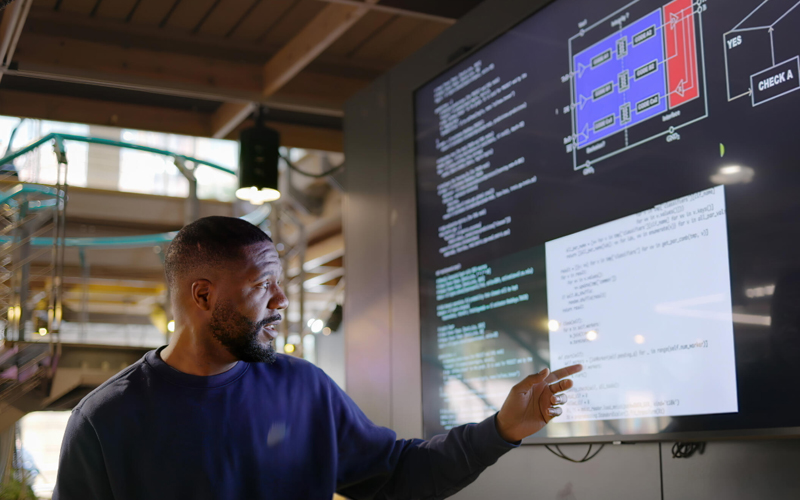Over the last two decades, product innovation across industries has accelerated, and insurance is no exception. Driven by evolving consumer expectations, technology, and sustainability, these shifts are no longer incremental but disruptive, redefining how insurers engage with customers.
The products that once served Baby Boomers, Gen X, and Millennials may not resonate with Gen Z and Gen Alpha, the digital-first generations with an attention span under 10 seconds and on-demand access to everything from groceries to healthcare. To remain relevant, insurers must design products that align with these lifestyles, aspirations, and risks.
Against this backdrop and as generational expectations evolve, here are some emerging trends that will shape the future of insurance:
simplicity in product and customer outreach
Keeping up with the need of the hour, insurers are already embracing a digital first approach. They are available on social media platforms and seamless online access to ensure ease of access to their products. But for a generation that consumes information in seconds, products must be effortless to understand, frictionless to apply for, and transparent in terms and conditions.
Gamified learning modules, episodic content, or mini-series on insurance basics can demystify products and nudge informed decisions, guiding the newer generations in choosing the right product. Simplicity and clarity will be non-negotiable.
beyond risk cover: products for wealth-focused generations
Digital entrepreneurship and early inheritance are reshaping financial priorities. For a generation focused on wealth creation, vanilla risk-based insurance may hold limited appeal. Instead, a wealth creation product with an attached risk protection can bridge the gap.
Equally, insurers could encourage parents to invest in early life insurance for children, building loyalty while expanding customer bases.
cyber protection as core coverage
As digital natives, upcoming generations are more vulnerable to fraud, identity theft, and cyber risks. Insurance must evolve to include robust digital fraud protection, an essential safeguard in today’s hyper-connected world.
micro and on-demand insurance
The on-demand economy is spawning a new class of risks. Insurance must mirror this shift by offering micro covers for specific, short-lived events, whether a disrupted food delivery, a single cab ride, or a weekend trip.
From insuring a yoga retreat to a one-day cover for mega-events like the FIFA World Cup, micro-insurance can transform the way consumers perceive protection.
lifestyle insurance for leisure-driven generations
With access to wealth at an early age, Gen Z and Alpha are prioritizing experiences—travel, wellness retreats, adventure sports, and lifestyle indulgences. Though we see an insurance for foreign travel, insurance for these small luxuries of life should be thought of too. And insurance must extend beyond conventional travel cover to micro-term lifestyle insurance.
Imagine a week-long policy for riverside camping, or short-duration term covers for high-footfall events. These innovations can align protection with lifestyle aspirations.
expanding cover for early-age illnesses
Diseases once associated with older demographics, like neurological disorders, lifestyle illnesses, and climate-related conditions, are increasingly affecting younger populations.
Insurers must respond with products that include these illnesses in core life covers rather than add-ons, complemented by wellness-linked packages that focus on prevention as well as treatment.
robotics and AI-related liability insurance
With robotics and AI permeating daily life, this gives an immense opportunity for insurers to tap into this arena…a product for the life of robots: robot malfunctions, accidents, or AI-driven liability.
From personal injury caused by autonomous machines to professional malpractice enabled by AI systems, the need for new indemnity models is imminent. Professional Indemnity Insurance for AI could become mainstream, protecting against errors or negligence caused by autonomous technologies.
redefining retirement in the gig economy
The rise of FIRE (Financial Independence, Retire Early), the gig economy, and entrepreneurial career paths are reshaping traditional retirement models. Retirement may arrive earlier, last longer, and be funded through fragmented incomes. And a right retirement product is needed for such an economy where Retirement Age may be 45 years or 50 years, the traditional retirement product approach may not be appealing.
Future retirement products must evolve to serve freelancers, solopreneurs, and remote workers—offering flexible, modular solutions that address new retirement realities.
insurance against unemployment
As automation changes the nature of work, the very nature of work and the number of employment opportunities are going to be limited for the upcoming generations.
Designing products that provide unemployment cover with life or health insurance can provide holistic protection in an increasingly volatile job market.
incentivizing sustainable choices
Sustainability-linked products, offering premium discounts for eco-conscious habits, wellness adoption, or sustainable living, will resonate with future consumers. These models can merge personal protection with collective responsibility.
the road ahead
The insurance landscape of the next decade will be dynamic, digital, and seamlessly integrated into everyday lifestyles. Products will evolve from static policies into adaptive solutions that flex with individual needs, offering hyper-personalized coverage, real-time engagement, and lifestyle-linked benefits.
Micro-insurance for short-term experiences, wellness-linked packages that encourage healthier living, and protections against cyber risks or AI-driven liabilities will become part of the mainstream. Retirement solutions will need to adapt to gig economy realities, while sustainability-linked incentives will resonate with eco-conscious generations.
Insurers that act now by embracing digital-first engagement, reimagining product design, and aligning with the values of younger generations will not only capture tomorrow’s markets but also establish enduring trust as true partners in their customers’ lives.
how can Infosys BPM help
At Infosys BPM, we don’t just help insurers operate better; we help them reimagine insurance as a catalyst for growth, trust, and relevance in the lives of future generations.
With our strong insurance workforce and partnerships with 45+ leading global insurers, we bring a unique combination of domain depth, digital innovation, and operational excellence to help insurers seize this future.
Our insurance practice spans multiple lines of business, from Life and Annuities to Property and Casualty insurance. Our suite of services goes beyond efficiency to deliver agility, resilience, and customer-centric innovation.
Connect with us to reimagine insurance for the generations ahead.







